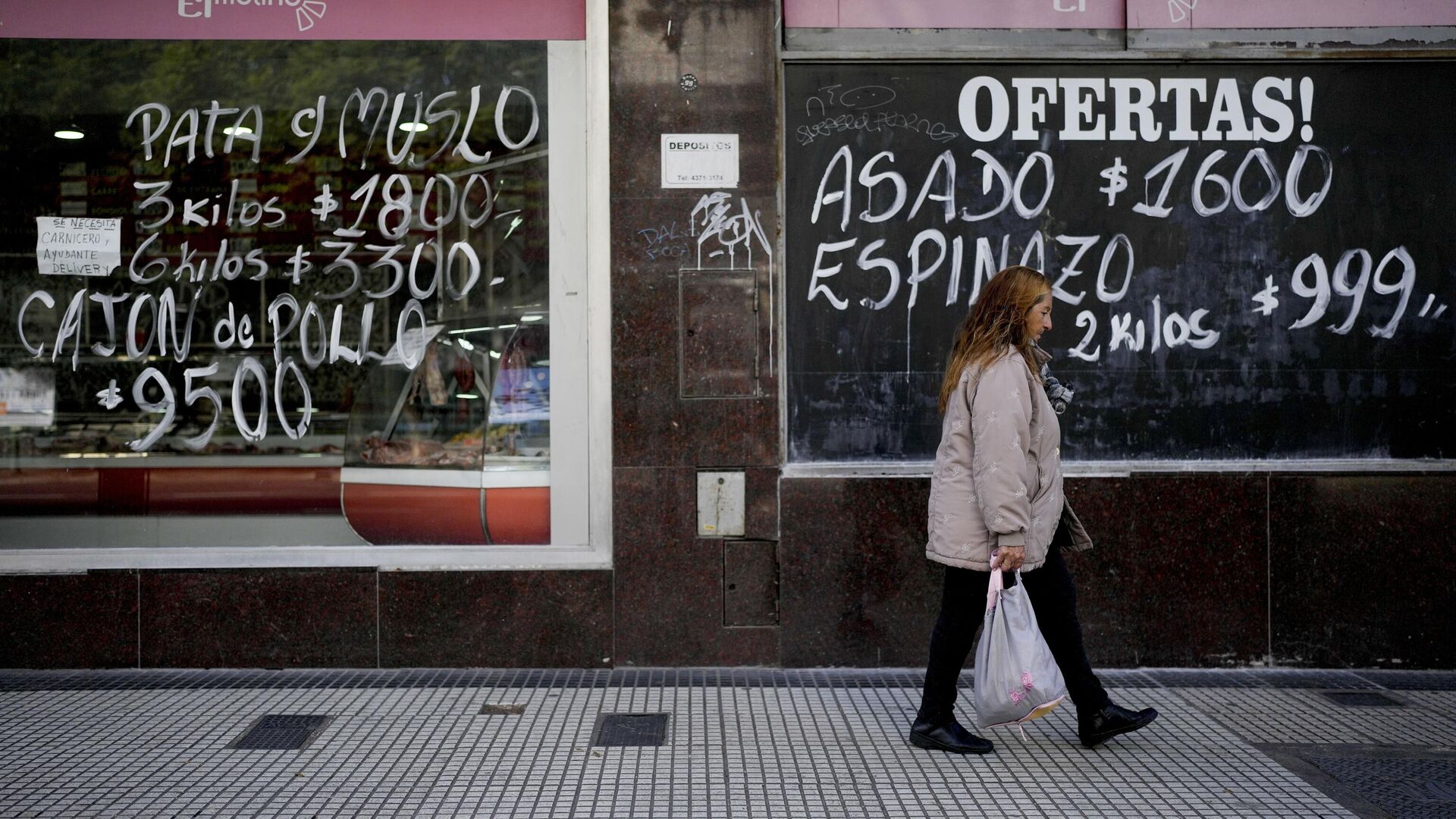https://sputnikglobe.com/20230516/argentinas-emergency-measures-likely-to-worsen-monetary-situation---ex-deputy-minister-1110391078.html
Argentina's Emergency Measures Likely to Worsen Monetary Situation - Ex-Deputy Minister
Argentina's Emergency Measures Likely to Worsen Monetary Situation - Ex-Deputy Minister
Sputnik International
The Argentine government's new economic emergency measures may temporarily delay the depreciation of the national currency but will ultimately make the situation even worse, a former official told Sputnik.
2023-05-16T00:47+0000
2023-05-16T00:47+0000
2023-05-16T00:43+0000
economy
argentina
imf
university of maryland
economic crisis
inflation
https://cdn1.img.sputnikglobe.com/img/07e7/05/10/1110390616_0:160:3072:1888_1920x0_80_0_0_76b1d2d9375658a51231b7f3a1d9fe46.jpg
The government announced on Sunday a set of measures, which includes an interest rate hike, among other things, to curb runaway inflation. Argentina's inflation soared past the 30-year watershed of 100% in February, making it a country with one of the highest inflation rates in the world. Sebastian Galiani, a former secretary of economic policy and deputy minister with the Argentine Ministry of Treasury which has since been reformed into the Ministry of Economy, told Sputnik that the newly announced measures were "unlikely to impact the inflation rate."He explained that private agents will go back to demanding more dollars in their portfolios ahead of the PASO (Primary, Open, Simultaneous and Mandatory) elections in August. Meanwhile, the increase in the interest rate will lead to higher currency emission, meaning that "after a short period, the disequilibrium in the pesos market will be even larger," according to the economist. Argentina entered an economic crisis in 2018, with annual inflation staying above 50% since then. The country has also experienced a severe devaluation of its national currency, with the Argentinian peso losing over half of its value against the US dollar in 2018. That same year, the IMF approved a $50 billion stand-by loan for Argentina to help the country reduce its budget deficit amid soaring inflation. Later, the fund agreed to increase the size of the financing program to $56.3 billion. However, the deal was renegotiated in 2021 to $44 billion.
https://sputnikglobe.com/20230512/inflation-in-argentina-rises-by-30-in-4-months---statistics-institute-1110305182.html
argentina
Sputnik International
feedback@sputniknews.com
+74956456601
MIA „Rossiya Segodnya“
2023
Sputnik International
feedback@sputniknews.com
+74956456601
MIA „Rossiya Segodnya“
News
en_EN
Sputnik International
feedback@sputniknews.com
+74956456601
MIA „Rossiya Segodnya“
Sputnik International
feedback@sputniknews.com
+74956456601
MIA „Rossiya Segodnya“
argentina, economic emergency measures, national currency, inflation, latin america
argentina, economic emergency measures, national currency, inflation, latin america
Argentina's Emergency Measures Likely to Worsen Monetary Situation - Ex-Deputy Minister
MOSCOW (Sputnik) - The Argentine government's new economic emergency measures may temporarily delay the depreciation of the national currency but will ultimately make the situation even worse, a former official told Sputnik.
The government announced on Sunday a set of measures, which includes an interest rate hike, among other things, to curb runaway inflation. Argentina's inflation soared past the 30-year watershed of 100% in February, making it a country with one of the highest inflation rates in the world.
Sebastian Galiani, a former secretary of economic policy and deputy minister with the Argentine Ministry of Treasury which has since been reformed into the Ministry of Economy, told Sputnik that the newly announced measures were "unlikely to impact the inflation rate."
"Inflation very likely will be around 10% in May and above 10% in June. The increase in the interest rate can delay some weeks, maybe a month or two a further depreciation of the peso, but not more than that," Galiani, who is now an economics professor at the University of Maryland, said.
He explained that private agents will go back to demanding more dollars in their portfolios ahead of the PASO (Primary, Open, Simultaneous and Mandatory) elections in August. Meanwhile, the increase in the interest rate will lead to higher currency emission, meaning that "after a short period, the disequilibrium in the pesos market will be even larger," according to the economist.
"At this point, the economic team does not have instruments to fight inflation," Galiani concluded. "Even obtaining extra funds from the [International Monetary Fund] is not clear that would help reduce inflation because the government will have to produce a mega devaluation in the official exchange rate."
Argentina entered an economic crisis in 2018, with annual inflation staying above 50% since then. The country has also experienced a severe devaluation of its national currency, with the Argentinian peso losing over half of its value against the US dollar in 2018.
That same year, the IMF approved a $50 billion stand-by loan for Argentina to help the country reduce its budget deficit amid soaring inflation. Later, the fund agreed to increase the size of the financing program to $56.3 billion. However, the deal was renegotiated in 2021 to $44 billion.



